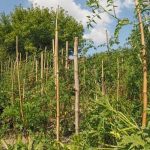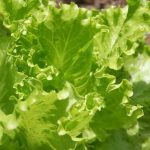Richmond, Virginia, is a city known for its rich history, diverse culture, and beautiful landscapes. With its humid subtropical climate, Richmond provides an ideal environment for vegetable gardening. Whether you’re a seasoned gardener or just starting out, there are plenty of opportunities to grow a wide variety of vegetables in this region.
The warm and humid summers, along with mild winters, create the perfect conditions for growing vegetables such as tomatoes, peppers, squash, and cucumbers. The city’s ample sunshine and well-distributed rainfall also contribute to the success of vegetable gardening in Richmond. In this article, we will explore the best vegetable varieties to grow in Richmond, provide tips for preparing the soil, discuss essential tools for successful gardening, and offer guidance on pest and disease management.
As we dive into the world of vegetable gardening in Richmond, Virginia, we will also provide a seasonal planting guide to help you plan your garden throughout the year. Additionally, we will highlight community resources available to vegetable gardeners in Richmond and share success stories from local gardeners who have excelled in their ventures. Whether you have limited space or a sprawling backyard, there are endless possibilities for cultivating a thriving vegetable garden in Richmond.
Best Vegetable Varieties to Grow in Richmond, Virginia
When it comes to vegetable gardening in Richmond, Virginia, the key to successful growth lies in choosing the right vegetable varieties that are well-suited for the climate and soil conditions of the area. Richmond, Virginia experiences a humid subtropical climate, with hot and humid summers and mild winters. This type of climate is conducive to growing a wide variety of vegetables throughout the year.
Warm-Season Vegetables
In Richmond, Virginia, warm-season vegetables thrive during the summer months. Some of the best warm-season vegetable varieties to grow in this region include tomatoes, peppers, eggplant, squash, cucumbers, and okra. These vegetables require plenty of sunlight and warm temperatures to flourish, making them ideal choices for Richmond’s climate.
Cool-Season Vegetables
During the cooler months in Richmond, Virginia, cool-season vegetables can be successfully grown. These include leafy greens such as kale, spinach, lettuce, and collard greens. Root vegetables like carrots, radishes, and turnips also do well in the region’s cooler temperatures.
Adaptable Varieties
Some vegetable varieties are particularly adaptable and can be grown successfully in both warm and cool seasons in Richmond. These include beans, peas, broccoli, and cauliflower. These versatile vegetables can be planted at various times throughout the year to ensure a continuous harvest.
By selecting the best vegetable varieties for Richmond’s climate and taking proper care of them through each season, gardeners can enjoy a bountiful harvest of fresh produce from their vegetable gardens all year round. Aspiring vegetable gardeners in Richmond should consider these recommended varieties when planning their gardens for optimal success with their vegetable gardening in richmond virginia efforts.
Tips for Preparing the Soil for Vegetable Gardening in Richmond, Virginia
When it comes to vegetable gardening in Richmond, Virginia, preparing the soil is a crucial step for successful harvests. The climate in Richmond is characterized by hot and humid summers with mild winters, making it ideal for growing a wide variety of vegetables. However, the soil in this region can be heavy clay or sandy loam, requiring some preparation to ensure optimal conditions for plant growth.
One of the first steps in preparing the soil for vegetable gardening in Richmond, Virginia is testing its pH levels. Most vegetables thrive in slightly acidic soil, so it’s important to adjust the pH level if necessary by adding lime to raise the pH or sulfur to lower it. A pH level between 6.0 and 7.0 is generally recommended for vegetable gardens.
In addition to testing and adjusting the pH level, enriching the soil with organic matter is essential for vegetable gardening in Richmond, Virginia. Adding compost, well-rotted manure, or other organic materials helps improve soil structure, fertility, and water retention. It also encourages beneficial microbial activity that supports healthy plant growth. Mixing organic matter into the top 6-12 inches of soil before planting provides an excellent foundation for a thriving vegetable garden in Richmond, Virginia.
Lastly, consider using raised beds or containers for vegetable gardening in Richmond, Virginia, especially if dealing with poor-quality soil or limited space. These options allow greater control over soil quality and drainage while minimizing weed competition.
Raised beds and containers also warm up faster than the ground in springtime, extending the growing season for certain vegetables like tomatoes and peppers. By taking these tips into consideration when preparing your soil for vegetable gardening in Richmond, Virginia you can set yourself up for success and bountiful harvests throughout the growing season”.
Essential Tools for Successful Vegetable Gardening in Richmond, Virginia
When it comes to vegetable gardening in Richmond, Virginia, having the right tools can make a world of difference in the success of your garden. The climate and soil conditions in Richmond require specific tools to ensure that your vegetables thrive.
One essential tool for successful vegetable gardening in Richmond, Virginia is a good quality garden trowel. This tool will help you dig small holes for planting seeds or seedlings, as well as transplanting small plants without causing damage to the roots.
Another important tool for vegetable gardening in Richmond, Virginia is a sturdy hoe. The hot and humid climate in Richmond can lead to an abundance of weeds, but with a reliable hoe, you can easily keep them in check and prevent them from competing with your vegetables for nutrients and water. Additionally, a durable hand cultivator is essential for loosening compacted soil and removing weeds around delicate plants without disturbing their roots.
In addition to these basic tools, every vegetable gardener in Richmond, Virginia should have access to a pair of high-quality gardening gloves to protect their hands from thorns, sharp edges, and soil-borne pathogens. And finally, a watering can or hose with a gentle spray attachment is crucial for providing the consistent moisture that many vegetables require for healthy growth.
With these essential tools at your disposal, you’ll be well-equipped to tackle the unique challenges of vegetable gardening in Richmond, Virginia.
Pest and Disease Management in Richmond, Virginia Vegetable Gardens
When it comes to vegetable gardening in Richmond, Virginia, pest and disease management is a crucial aspect to consider in order to ensure a successful harvest. The region’s humid subtropical climate can create favorable conditions for a variety of pests and diseases that can affect your vegetable garden. Implementing proper management techniques is essential for maintaining healthy plants and maximizing yields.
To effectively manage pests and diseases in your Richmond, Virginia vegetable garden, consider the following tips:
- Choose disease-resistant varieties: Selecting vegetable varieties that are resistant to common diseases in the area can greatly reduce the risk of infestation.
- Practice crop rotation: Rotate your crops each season to prevent the buildup of pathogens in the soil that can lead to disease outbreaks.
- Implement integrated pest management (IPM) techniques: Utilize a combination of biological, cultural, physical, and chemical control methods to manage pests while minimizing environmental impact.
In addition to these proactive measures, it’s important for vegetable gardeners in Richmond, Virginia to stay vigilant and regularly inspect their plants for any signs of pest or disease infestation. Early detection and intervention can significantly reduce the impact on your garden.
Taking these steps will help you maintain healthy vegetables throughout the growing season and overcome many common challenges faced by vegetable gardeners in Richmond, Virginia. By being proactive in pest and disease management, you can enjoy a bountiful harvest of fresh and nutritious produce from your own backyard garden.
Seasonal Planting Guide for Richmond, Virginia Vegetable Gardens
Richmond, Virginia experiences a subtropical climate with hot and humid summers and mild winters, making it an ideal location for vegetable gardening. Understanding the seasonal planting guide is essential for successful vegetable gardening in this region. By following this guide, gardeners can maximize their yields and have a bountiful harvest throughout the year.
Spring Planting
In early spring, Richmond gardeners can start planting cold-tolerant vegetables such as lettuce, spinach, kale, and carrots. These vegetables thrive in the cooler temperatures and can be planted directly into the soil or in containers. It is also a good time to plant onions, potatoes, and peas as they can withstand the occasional frost that may occur in early spring.
Summer Planting
As summer arrives in Richmond, it’s time to transition to warm-season vegetables such as tomatoes, peppers, eggplants, cucumbers, and squash. These vegetables require warm soil and plenty of sunlight to flourish. It’s important to provide adequate water during the hot summer months to prevent heat stress on the plants. Additionally, succession planting of quick-growing crops like beans and corn can ensure a continuous harvest throughout the season.
Fall Planting
In late summer and early fall, Richmond gardeners can sow cool-season crops for a second harvest before winter sets in. Vegetables such as broccoli, cauliflower, Brussels sprouts, and radishes are ideal for fall planting. These crops will benefit from the cooler temperatures and produce a flavorful harvest well into the fall months. It’s also a good time to plant cover crops such as clover or rye to enrich the soil over winter.
By following this seasonal planting guide for vegetable gardening in Richmond Virginia, gardeners can enjoy a diverse range of fresh produce year-round. With careful planning and attention to seasonal changes, they can create thriving gardens that provide an abundance of homegrown fruits and vegetables for their families.
Community Resources for Vegetable Gardeners in Richmond, Virginia
Richmond, Virginia is a thriving community filled with passionate vegetable gardeners who are eager to share their knowledge and experience with others. Whether you are a beginner looking to learn the basics or an experienced gardener seeking new insights, there are numerous resources available to help you succeed in vegetable gardening in Richmond, Virginia.
Here are some valuable community resources for vegetable gardeners in Richmond:
- Local Gardening Clubs: Joining a gardening club is a great way to connect with like-minded individuals who share your passion for vegetable gardening. These clubs often host regular meetings, workshops, and events where members can learn from guest speakers and fellow gardeners.
- Farmers’ Markets: Visiting local farmers’ markets is not only a great way to support local growers but also an opportunity to gather valuable information about what types of vegetables thrive in the region. Chatting with vendors can provide insight into which varieties perform well in Richmond’s climate.
- Cooperative Extension Services: The Virginia Cooperative Extension offers educational programs, publications, and workshops specifically tailored to the needs of home gardeners. Their resources cover topics such as soil testing, pest management, and plant care for the Richmond area.
In addition to these community resources, there are also online forums and social media groups dedicated to vegetable gardening in Richmond, Virginia. These platforms allow gardeners to connect virtually, share tips and tricks, ask questions, and even swap seeds or seedlings.
Whether you prefer face-to-face interactions or digital engagement, the abundance of community resources available demonstrates the strong support network for vegetable gardening in Richmond, Virginia. By tapping into these valuable resources, both novice and seasoned gardeners can expand their knowledge and grow thriving vegetable gardens in this vibrant city.
Success Stories
In conclusion, vegetable gardening in Richmond, Virginia is not only possible but also thriving with the right approach and knowledge. By understanding the local climate and soil conditions, choosing the best vegetable varieties, preparing the soil properly, using essential tools, managing pests and diseases, following a seasonal planting guide, and tapping into community resources, residents of Richmond can create successful and abundant vegetable gardens.
One of the key factors for successful vegetable gardening in Richmond, Virginia is to learn from those who have already achieved success in this area. By reading about the experiences and practices of seasoned gardeners in the region, new gardeners can gain valuable insights and avoid common pitfalls.
These success stories serve as an inspiration for aspiring vegetable gardeners and provide practical tips that can make a significant difference in their own gardening journey. Learning from these profiles of successful vegetable gardeners can help newcomers to Vegetable Gardening in Richmond Virginia have a better chance at flourishing.
Overall, there is a vibrant community of vegetable gardeners in Richmond, Virginia who are passionate about sharing their knowledge and experiences. This sense of camaraderie and support is an invaluable resource for anyone interested in starting or improving their own vegetable gardens. With the right techniques and dedication, residents are discovering that vegetable gardening in Richmond is not just a hobby but also a rewarding way to connect with nature, enjoy fresh produce, and contribute positively to the environment.
Frequently Asked Questions
When Should I Plant My Garden in Richmond VA?
In Richmond VA, it’s best to start planting your garden in late March to early April. This timing allows for the last frost to pass and ensures that your plants have the best chance at thriving in the warmer months.
What Vegetables Are Good to Grow in Virginia?
Virginia’s climate makes it suitable for growing a wide variety of vegetables. Some popular options include tomatoes, peppers, squash, cucumbers, beans, and leafy greens like lettuce and spinach. Root vegetables like carrots and beets also do well in Virginia’s soil.
Is Virginia a Good State for Gardening?
Virginia is indeed a good state for gardening due to its varied climate and fertile soil. The state experiences all four seasons, allowing for a diverse range of plants to thrive. Additionally, Virginia’s agricultural history means that there are plenty of resources available to support aspiring gardeners.

If you’re looking to get into vegetable gardening, or are just looking for some tips on how to make your current garden better, then you’ve come to the right place! My name is Ethel and I have been gardening for years. In this blog, I’m going to share with you some of my best tips on how to create a successful vegetable garden.





